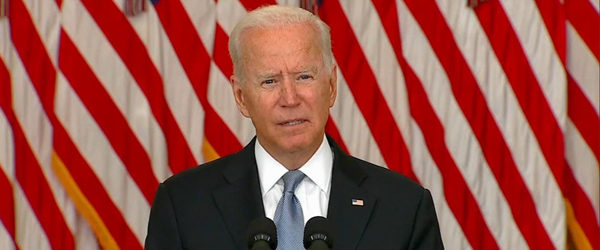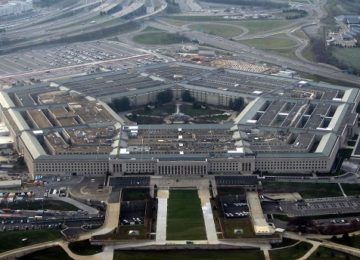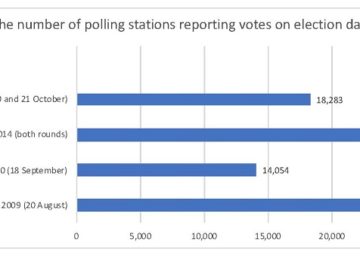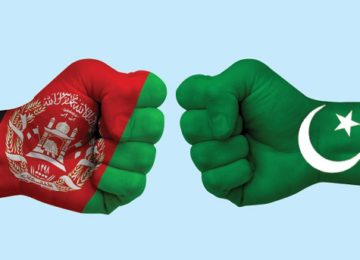A senior American defence official has dismissed the ubiquitous notion that the United States abruptly withdrew its troops from Afghanistan, saying the move was driven by the Biden administration’s shift in “strategic priorities”.
Pentagon Under Secretary of Defence for Policy Colin Kahl made the startling but not surprising statement at an August 8, 2022, press conference in Washington, which was the first candid and categorical expression of why the US withdrew from Afghanistan a year ago. It was not abrupt, the official implied.
“The fundamental driver of the President’s decision to complete the withdrawal from Afghanistan …..was a recognition that America’s strategic priorities had shifted and that the United States had to prioritize the challenge – a pacing challenge posed by the People’s Republic of China,” Kahl said, signaling that the US is now focused on China’s westward expansion, and the Biden administration is gradually implementing a policy that defines China as a rival country.
The under-secretary underscored a need to extricate the US from over two decades of war in Afghanistan and focus on the threats that Russia and China pose to the United States.
“We had to be prepared to focus more on the threat to European security represented by the acute threat that Russia poses. That for too long, we had been bogged down in a particular part of the world at the expense of other, more pressing strategic priorities. And I think the events we’ve been talking about today, whether it’s across the Taiwan Strait or in Russia-Ukraine, validate that assessment — that the world has changed and we need to focus on the biggest threats to our security in the contemporary environment.”, Kahl underscored.
President Joe Biden, in an address to Congress on April 29, 2021, made several references to China to underline the new focus on the world’s second-biggest economy.
“We compete with China and other countries to win the 21st Century”, Biden said. President Xi Jinping, Biden added, is “deadly earnest” about China “becoming the most significant, consequential nation in the world.”
Was Speaker of the U.S. House of Representatives Nancy Pelosi’s Taiwan visit also part of the same policy? It seems that the visit went ahead despite warnings and condemnation by China at the highest level. China considers Taiwan as its inalienable part and hence opposed to any official action or contact with Taipei that it says disregards China’s sovereignty.
Kahl also defended the abrupt withdrawal a year ago by saying the killing on August 1 of Al Zawahiri underlined that to continue the counter-terrorism mission, there was no need for boots on the ground. He said this in response to whether it had been viable to completely pull back the US security forces from Afghanistan.
“Frankly, a lot of our critics didn’t believe that was possible, they didn’t think that you could do things over-the-horizon, that we couldn’t achieve, you know, counter-terrorism objectives, at least the objective of protecting the American homeland if we didn’t have thousands of boots on the ground in — in Afghanistan. That’s not what the President’s view is and I think, in the last 10 days, in the strike that was carried out on Ayman al-Zawahiri, the leader of Al Qaida and the most wanted terrorist on planet Earth and one of the two co-planners for the 9/11 attacks, what we’ve demonstrated to Al Qaida, but also to other terrorist organizations is that we can still reach out and touch them and protect our vital national interests, even though we no longer have thousands of troops in Afghanistan.”, he conceded.
Kahl’s answers made it apparent that the US has shifted its focus to the bigger contenders now that it has had its fair share of engagement in Afghanistan. But, on the other hand, the presence of Al Qaeda in Afghanistan still raises a question mark on whether America achieved what it had aspired for.Al Zawahiri’s killing does not extirpate the global terror threat, but it does tell one thing: the United States is present in Afghanistan. As it appears, the US is facing multifaceted challenges: next to the global terror threat, it now has tough strategic competition chiefly hailing from China and Russia.
Is the “regime change” in Pakistan, as claimed by former prime minister Imran Khan, and the turmoil in Sri Lanka also reflective of the same strategy that aims to nudge the region away from engagement with China?
Will the US policy slow down, if not jeopardise, Chinese investments in Asian and African countries as part of its Belt and Road Initiative(BRI)?
Quite likely as a new tug of war of interests is unfolding, also because of the G-7’s new $ 600 billion initiative Partnership for Global Infrastructure – a direct response to BRI.
Will this also threaten Chinese attempts to keep its trade routes to African markets through BRI? Has it also dampened the progress under the BRI flagship CPEC? Would there be further militarization of the South China Sea as the US vigorously proceeds to stall Chinese connectivity to Asian and African countries?
By Imtiaz Gul
Originally published in Matrix








